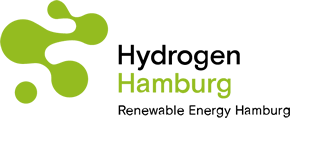Details
Hydrogen mobility made in Hamburg Fuel Cell Production at Still
Still spokesperson Jacqueline Poppe talks about the fuel cell production at the Still logistics company in Hamburg.

REH: The use of fuel cells is less widespread in the intralogistics sector than battery drives. What is the benefit of warehousing equipment that runs on hydrogen?
Jacqueline Poppe: "One major benefit of hydrogen in intralogistics is the short recharging time of a hydrogen vehicle. While a battery-operated vehicle takes between 1.5 and 3.0 hours or even 6 to 12 hours to charge, depending on the type – Li-ion or lead-acid – and capacity, a hydrogen-powered forklift truck can be recharged in just 60 seconds. This creates process efficiency benefits and can also lead to savings in the number of forklift trucks required. Another benefit of hydrogen vehicles is their safety. Potential risks when handling this energy source are eliminated, as the fuel cell system remains in the vehicle and doesn’t need to be changed – like a lead-acid battery, for example."
REH: What experiences have encouraged you to take this strategic direction?
Jacqueline Poppe: "Every major industrial nation has a hydrogen strategy and there is a clear target for achieving climate neutrality by 2050, especially in the EU. Hydrogen is an important building block for the green energy of the future. It can be permanently stored with no loss of power, is easy to transport and can be produced in various ways – these are just a few reasons why hydrogen is a valuable opportunity for making Germany and Europe more independent from the global energy market. Its importance will continue to grow in many industries over the coming years – but intralogistics is a minor consumer compared to other sectors. So by the time hydrogen becomes an established energy source for intralogistics, it will already be relevant in various other sectors."
REH: Do you also supply customers with hydrogen? If so, how is this produced?
Jacqueline Poppe: "We supply our customers with innovative vehicles fitted with fuel cell systems and provide tailored, comprehensive advice. On request, we also put them in touch with professional partners to implement their hydrogen infrastructure. But we only recommend the use of green hydrogen – otherwise the goal of climate neutrality would not be met."
REH: What made you decide to establish production at your Hamburg site?
Jacqueline Poppe: "Thanks to the Mechatronics Competence Centre at our Hamburg site, we already have a facility for the production of numerous components that we need for our fuel cell system, such as inverters and circuit boards – of the highest quality and at competitive prices. It therefore made sense for us to also produce the systems at the Hamburg site, including the complex testing procedure. In addition, we regard the establishment of such a future and innovation-relevant topic as hydrogen technology in Hamburg as an attractive consolidation of our current production location."
REH: What were the biggest challenges during conception and implementation?
Jacqueline Poppe: "Electric drive systems have been one of STILL’s core competencies for over 100 years. We’re experts in designing these based on the respective vehicle architecture. And so we were able to refer to and evaluate countless application profiles to determine the optimum operating strategy for our fuel cell systems. What was new was the coordination between the fuel cell stack, battery and vehicle, i.e. the electric configuration of the components in order to find the optimum operating point. A fuel cell system is ultimately a hybrid system: the stack produces energy and supplies this to the battery; the battery runs the vehicle. The trick is to select the operating point so that on the one hand the vehicle always has enough power and on the other hand the battery remains within an optimum state-of-charge range (for a long service life), while the stack starts up in controlled, sufficiently long phases in order to supply energy. A frequent on and off operation would result in rapid stack ageing."
REH: Which stages of 24-volt fuel cell system production are undertaken at the plant?
Jacqueline Poppe: "First of all, the hydrogen tank and counterweights are assembled on our production line. In the second stage, the stack is installed and the electronics are connected. Then, the external elements are connected and the entire system is tested on the test rig. This also includes flashing the operating software."
REH: Do you think there are any special local benefits for the hydrogen sector that go beyond your company?
Jacqueline Poppe: "As an innovative city, Hamburg is an attractive location for future projects such as hydrogen technology. This also means that both the necessary suppliers and other experts are based here – and this can definitely be beneficial. In our case, however, this wasn’t the decisive factor in our decision to establish our fuel cell system production in Hamburg."
Thank you very much!


